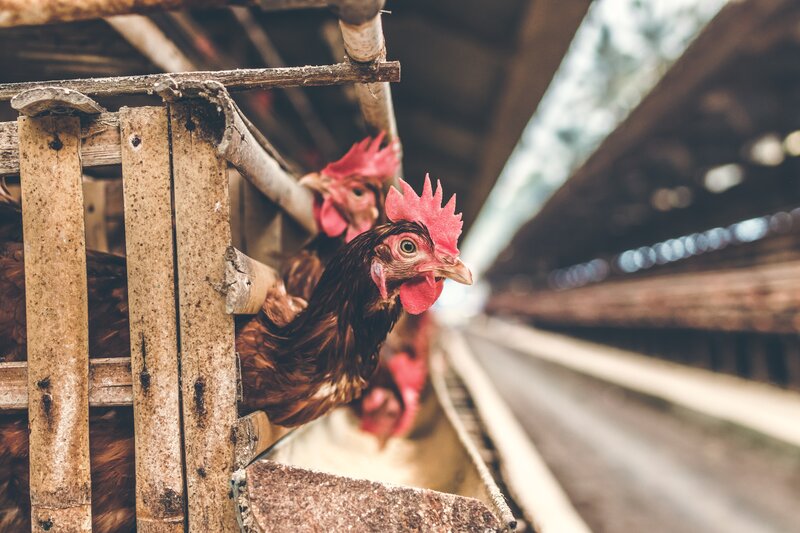From December 14, hens, turkeys and other captive birds in parts of the UK will have to be kept indoors to prevent the spread of bird flu. Vets in England, Scotland and Wales made the decision after a number of cases were detected among captive and wild birds.
—
What is Happening?
- The government issued a statement saying that while the risk to humans is “very low” and shouldn’t affect the consumption of poultry products, “swift action” is needed to curb the outbreak. The new rules will apply to all bird owners in Britain.
- Great Britain’s three Chief Veterinary Officers say that “whether you keep just a few birds or thousands, from 14 December onwards you will be legally required to keep your birds indoors, or take appropriate steps to keep them separate from wild birds.” They add, “We have not taken this decision lightly but it is the best way to protect your birds from this highly infectious disease.”
A turkey farm in Norfolk in the UK is among those to have had an outbreak of the H5N8 bird flu strain. The birds will be culled to prevent the spread.
The Department for Environment Farming and Rural Affairs have not given an end date for the measures, but the department says that they will be kept under “regular review.”
You might also like: Singapore is the First Country to Approve a Lab-Grown Meat Product
Farmers who are forced to move their birds indoors in circumstances such as these may continue to market the meat as “free range” as long as the measures do not last longer than 12 weeks. For eggs, this is 16 weeks. After this point, the eggs must be downgraded to “barn produced.”
- Bird flu is a zoonotic disease and there are numerous strains. Most either do not affect humans, or are not easily caught and spread by humans. Deaths have been recorded outside of the UK related to some strains, but the H5N8 strain – which makes up the bulk of the UK’s current cases – has not infected any humans worldwide to date, the NHS has said.
- According to the WHO, human infections are primarily acquired through direct contact with infected animals or contaminated environments. If a person does acquire the virus, it may cause disease ranging from mild upper respiratory tract infection (fever and cough), to severe pneumonia, acute respiratory distress syndrome (breathing difficulties), shock and death. Conjunctivitis, gastrointestinal symptoms, encephalitis (inflammation of the brain) and encephalopathy (brain damage or disease) have also been reported to varying degrees depending on subtype
- The ongoing circulation of these viruses in poultry is particularly concerning, as these viruses have the potential to mutate to become more contagious between people. The easiest and most effective way to reduce the chances of transmission to humans is to avoid contact entirely, meaning reduced demand from consumers.
- Currently, around 130 million chickens are slaughtered every day; by weight, 60% of the mammals on the planet are livestock, 36% are humans and 4% are wild.
Livestock- which includes poultry- accounts for around 14.5% of the world’s greenhouse gas emissions each year, roughly the equivalent of the emissions from all the cars, trucks, airplanes and ships combined. A 2018 study shows that cutting meat consumption is the best single environmental action a person can take.

















